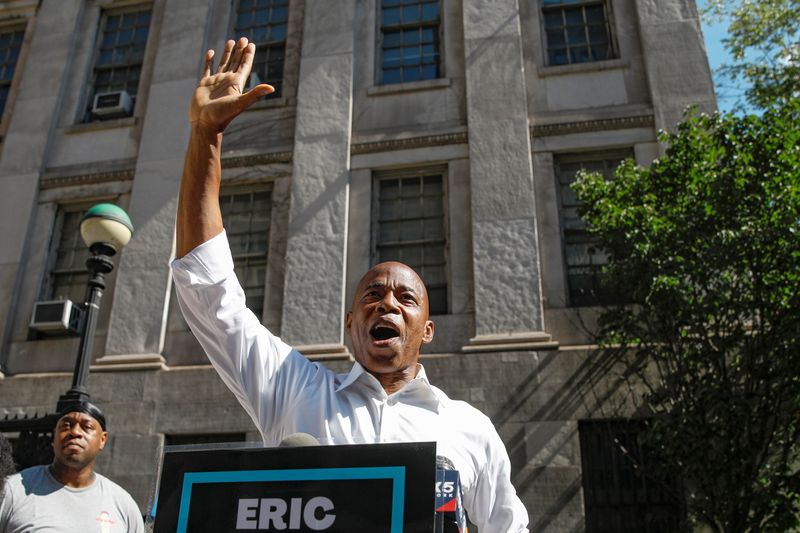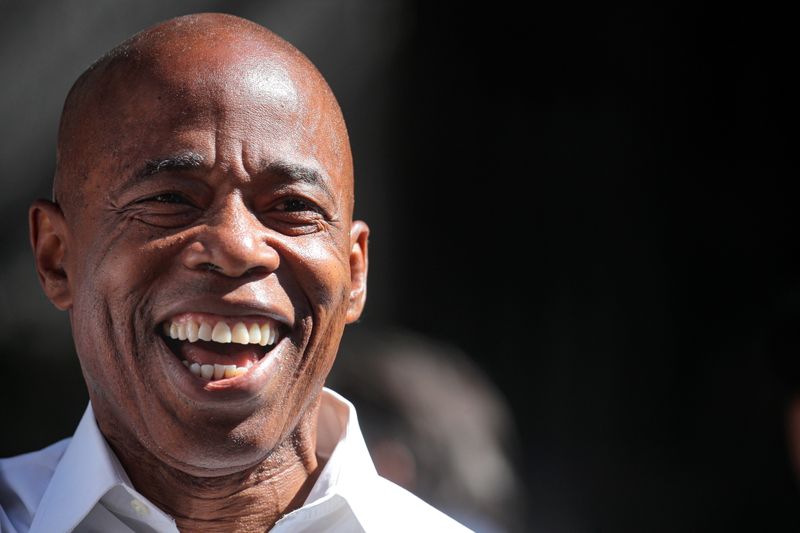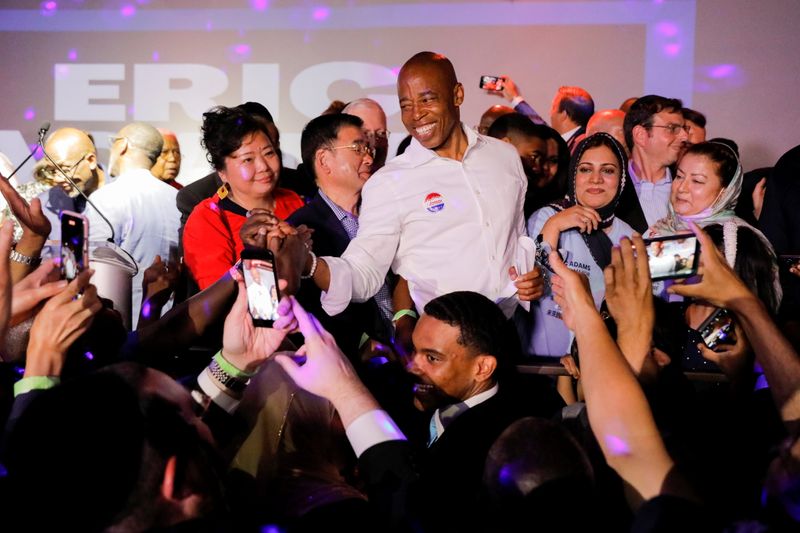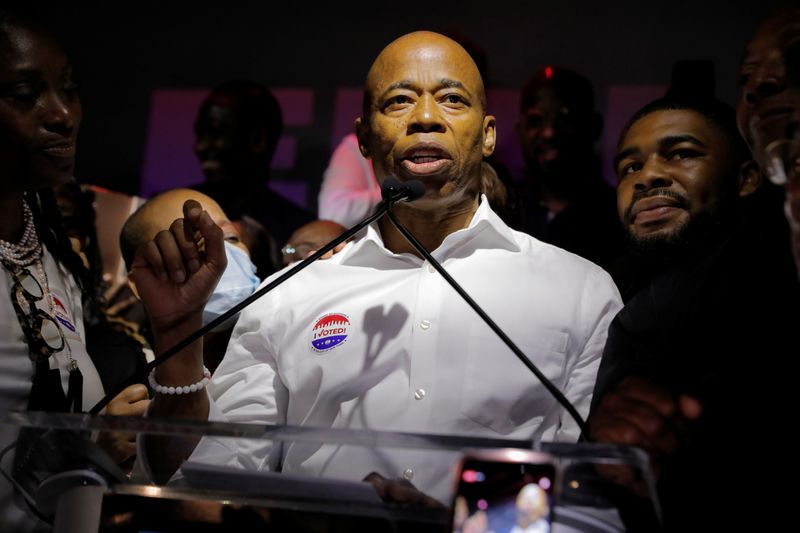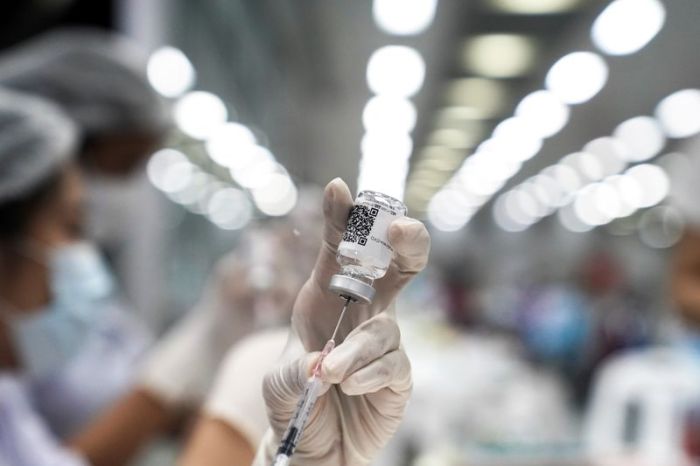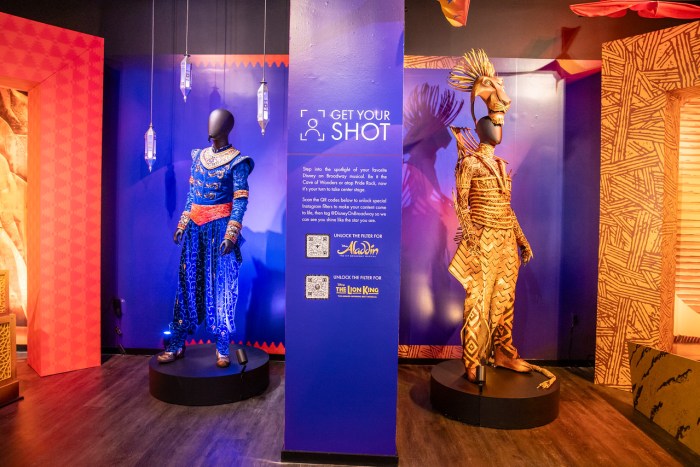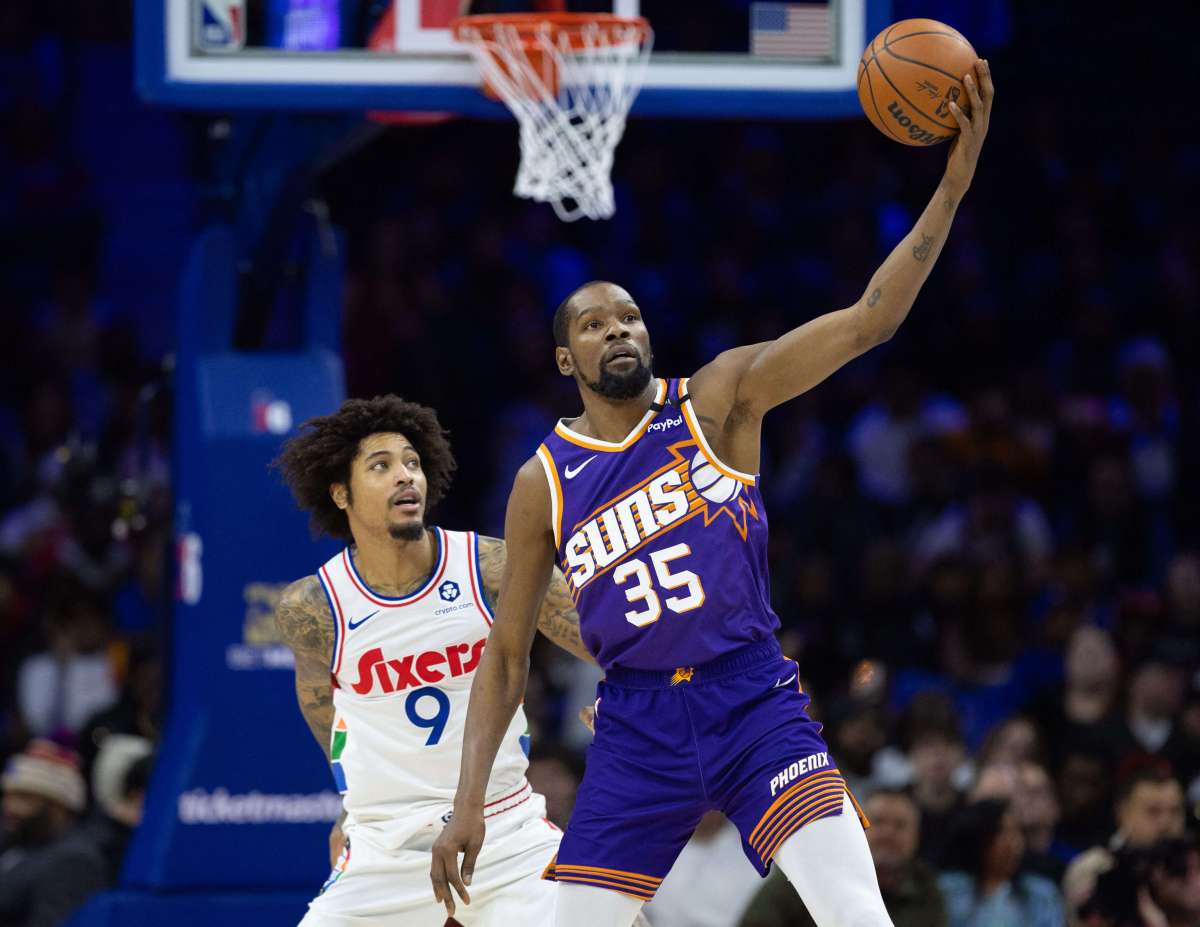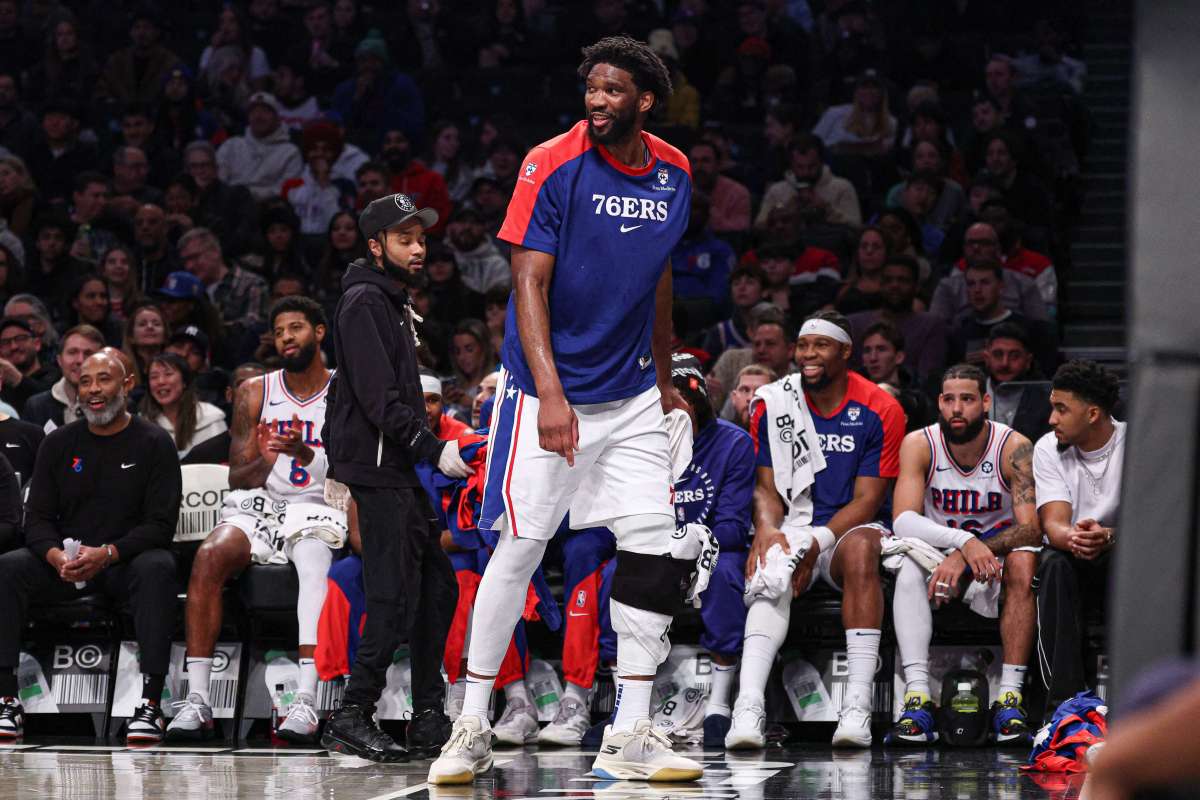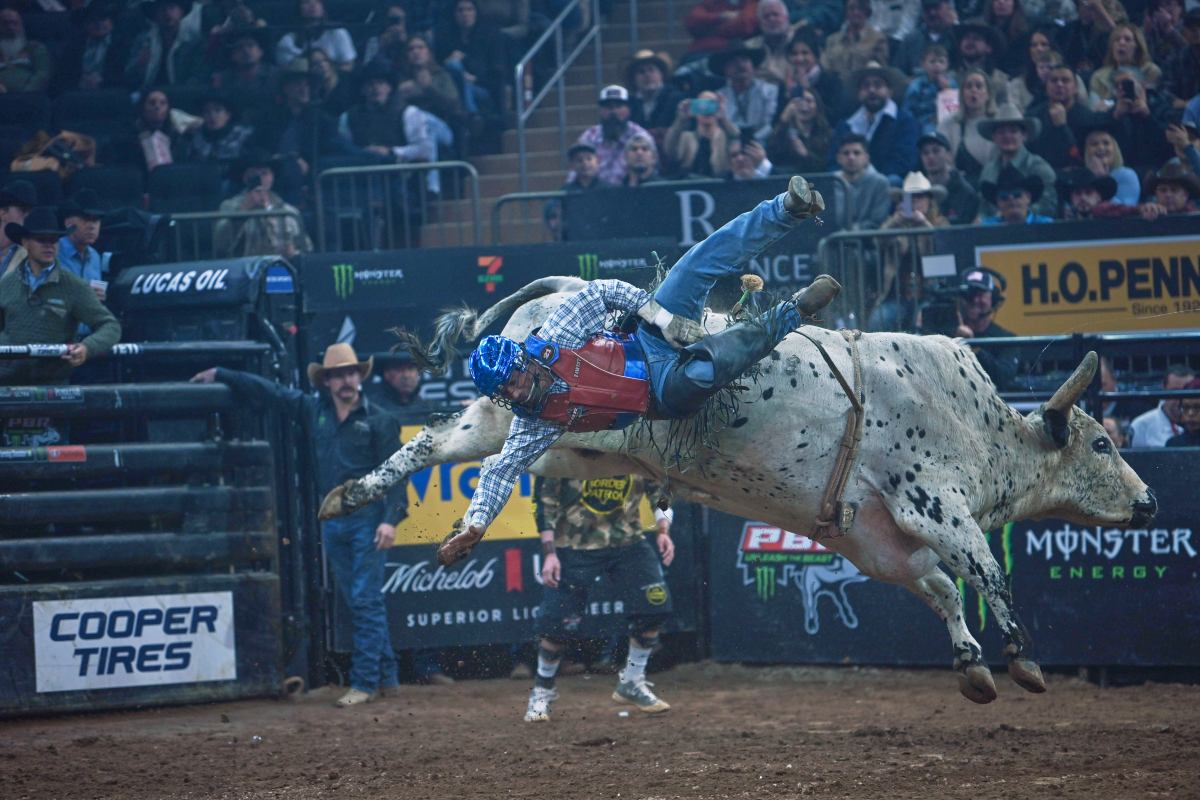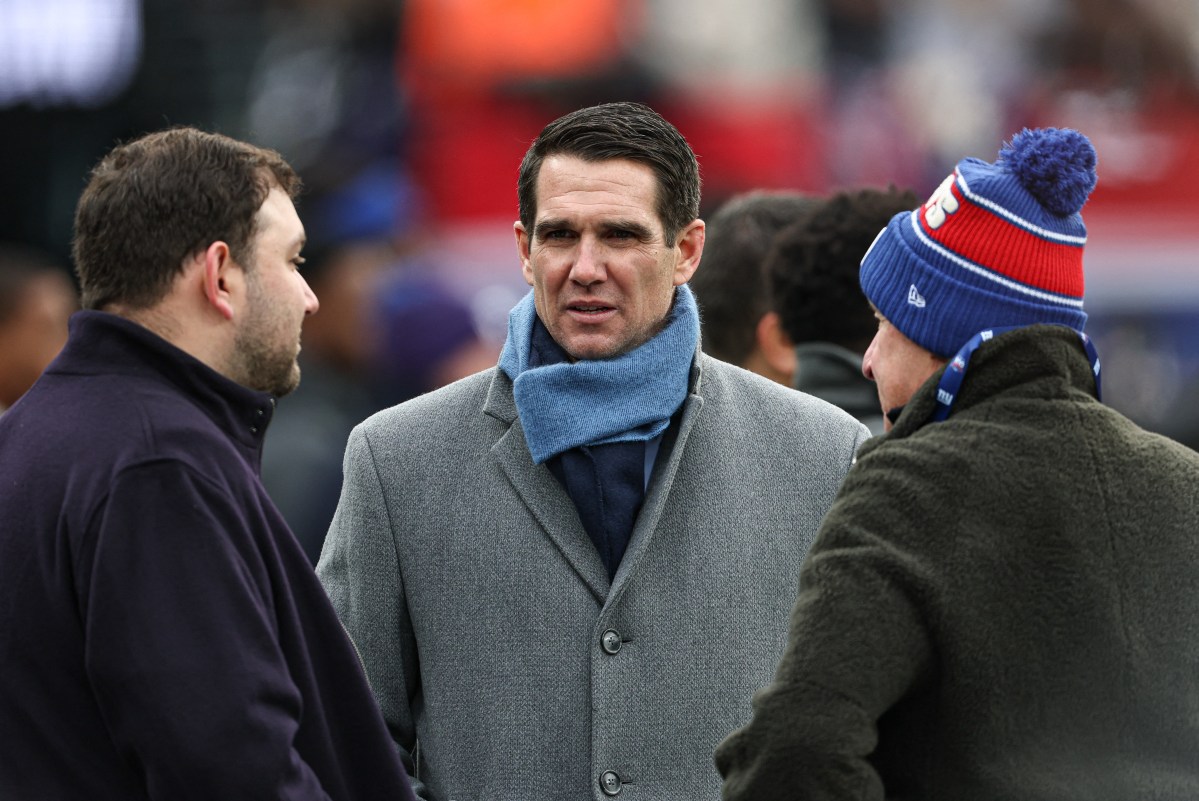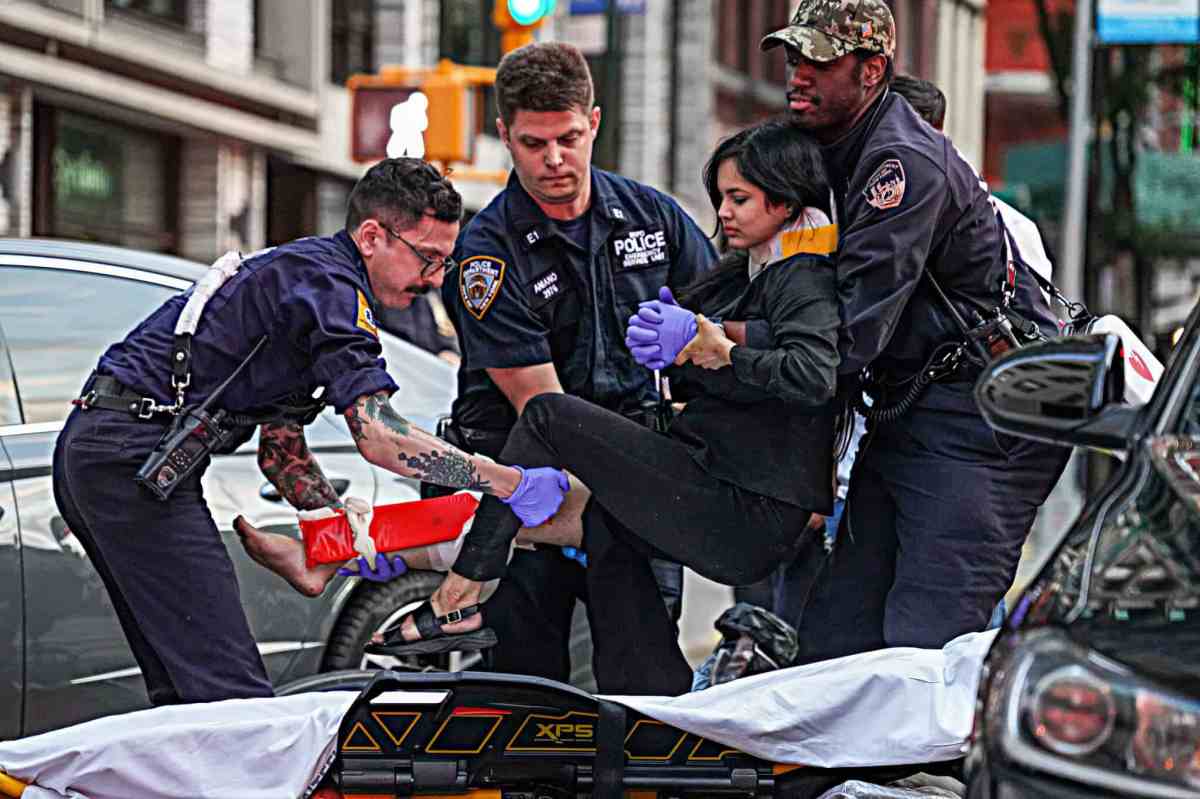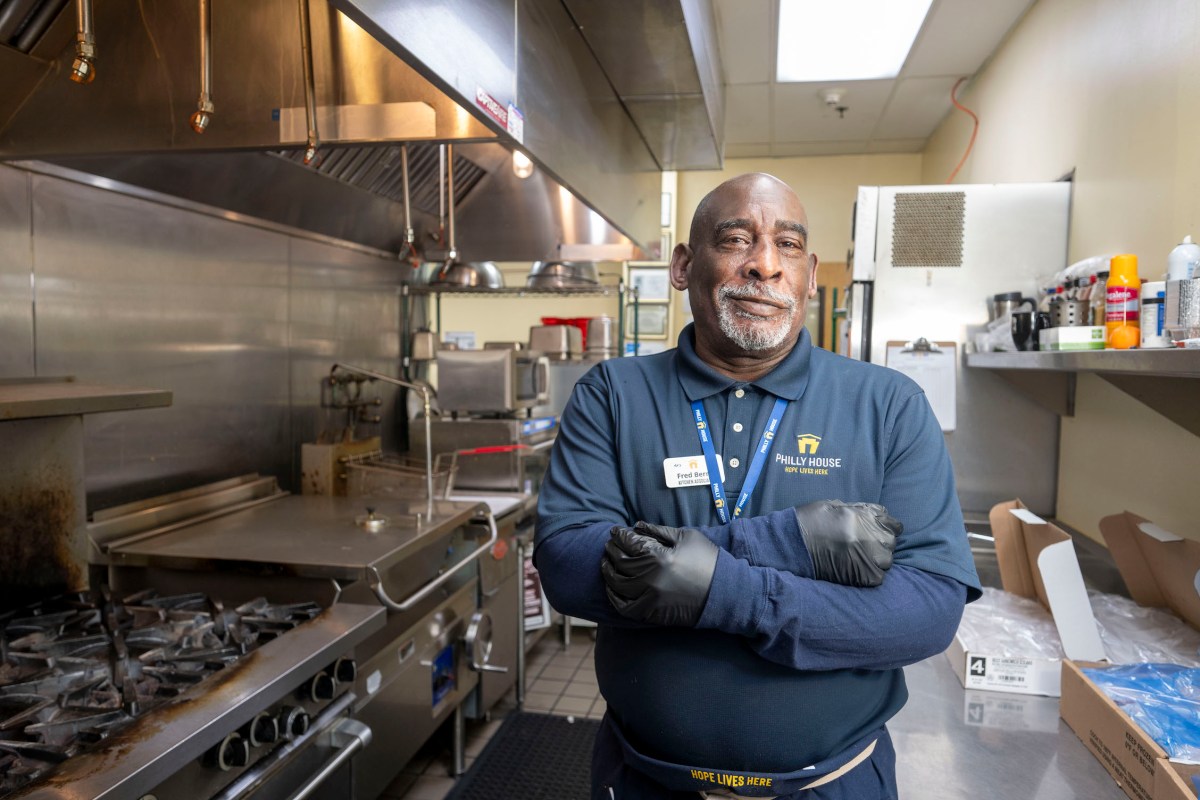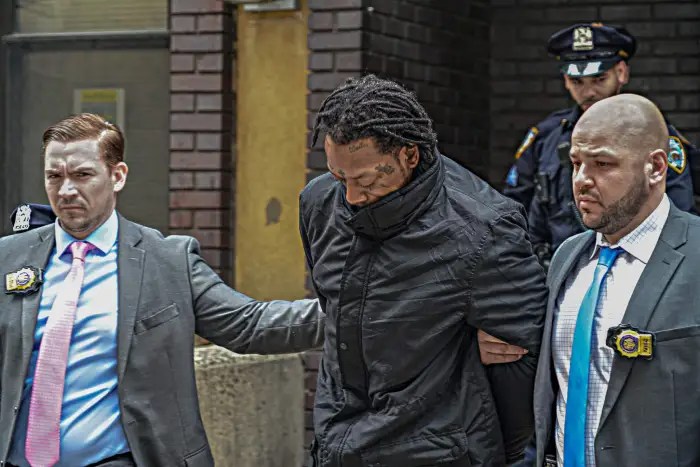(Reuters) – For months, as New York City faced a growing spate of shootings, mayoral candidate Eric Adams delivered the same line at one campaign event after another: “The prerequisite for prosperity is public safety.”
Adams’ message, which included a vow to beef up subway patrols, appears to have resonated with a broad swath of New Yorkers as the United States’ most populous city undertakes a tough recovery from the coronavirus pandemic and confronts deep challenges including wealth inequality and police accountability.
In initial results from Tuesday’s Democratic primary election, Adams was the first choice on more than 31% of in-person ballots. That puts him nearly 10 percentage points ahead of liberal rival Maya Wiley, who has called for cutting one-sixth of the city’s $6 billion police budget.
A year ago, amid widespread demonstrations across the city over police brutality and calls to “defund the police,” it might have been difficult to imagine a former police captain who advocated for more officers on the street emerging as the Democratic Party’s preferred mayoral candidate.
But Adams was able to strike a balance between promising to reform the department and keep New Yorkers safe from crime.
His success could offer clues about where Democratic voters stand on policing issues ahead of next year’s congressional midterm elections. With Republicans preparing to blame Democrats and the “defund” movement for a spike in homicides across U.S. cities, the Democratic Party could be forced to navigate progressive calls to reduce police budgets with combating rising crime.
On Wednesday, President Joe Biden announced a new effort to curb gun violence amid growing impatience from gun-control activists that the administration has not acted more quickly.
Shooting incidents are up nearly two-thirds over last year in New York City, from 386 through mid-June in 2020 to 634 in 2021.
Adams’ background – both as an officer and as a Black captain who spoke out against his own department’s missteps – appears to have granted him credibility on the issue with voters.
“As we’ve seen crime and public safety dominate the conversation, he’s had this insider and outsider status,” said Christina Greer, a political science professor at Fordham University who has followed the mayoral race closely. “He’s been in law enforcement, but he’s also been very critical of law enforcement.”
WINNER UNKNOWN FOR WEEKS
The election’s outcome will be determined by the city’s new ranked-choice voting system, which allows voters to rank up to five candidates in order of preference. Tuesday’s results reflected only the top choices of voters who cast ballots in person.
There are at least 87,000 absentee ballots to be counted. Election officials can then tabulate voters’ other ranked choices, a process expected to last until mid-July.
Since 2004, there have been only 15 ranked-choice voting elections, or 3.8%, in which the eventual winner did not lead among first-choice votes, according to Fairvote, a nonpartisan organization that advocates for election reform.
The Democratic nominee will be heavily favored against Republican Curtis Sliwa, who founded the civilian safety patrol group Guardian Angels and vowed to run on a “law-and-order” platform.
Adams, the current Brooklyn borough president, would be the city’s second Black mayor if elected in November.
During the campaign, Adams put his experience patrolling the subways as a transit officer front and center, arguing he alone among more than a dozen Democratic candidates knew how to stem the crime jeopardizing the city’s nascent recovery from the pandemic.
But he also spoke of getting beaten by officers as a teenager in Queens and noted his record of calls for reform. As an officer, he co-founded a racial justice group, 100 Blacks in Law Enforcement Who Care, and spoke out against the department’s aggressive use of stop-and-frisk, a tactic that disproportionately harassed Black men.
“As a cop, he has spoken up against police abuse; as a candidate, he has spoken up about public safety,” said Michael Hendrix, an urban policy analyst at the Manhattan Institute. “He’s able to reconcile seemingly contradictory messages on policing.”
Adams understood the city’s Democratic electorate is not as progressive as one might think, Greer said, noting that New Yorkers elected Rudy Giuliani and Michael Bloomberg, both as Republicans, in recent decades.
Adams, who vowed to be a “blue-collar mayor,” managed to build a diverse coalition of Black and Latino voters, union members and working-class white voters, finishing well ahead of the field in the Bronx, Brooklyn, Queens and Staten Island. Kathryn Garcia, the former sanitation chief who ran as a technocrat and is close behind Wiley in third place, leads among voters in Manhattan.
Wiley, the favored candidate among liberal activists, attacked Adams on policing, noting that he had expressed support for reviving stop-and-frisk as well as a controversial plainclothes unit linked to numerous complaints.
Adams has said he would refocus the department on stopping illegal guns, increase diversity among high-ranking officers and prevent police abuses.
His tough-on-crime message may have seemed out of step with last summer’s “Black Lives Matter”-driven protests. But Adams on Tuesday told reform advocates that police misconduct alone is not to blame.
“If Black lives really matter, it can’t only be against police abuse – it has to be against the violence that’s ripping apart our communities,” he said.
(Reporting by Joseph Ax; Editing by Colleen Jenkins and Jonathan Oatis)

